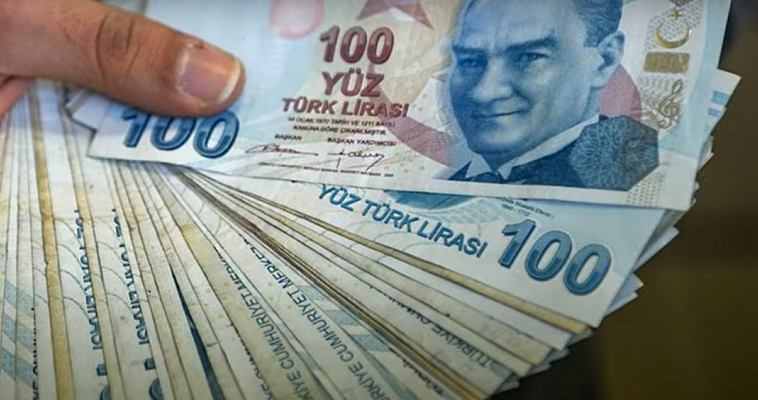Anastasios Lavrentzos: The Turkish economy is buckling under – Let’s not give Erdogan the “kiss of life”
03/08/2020
The Turkish lira has weakened significantly in recent days as its slide against the dollar and the euro has accelerated. In this regard, it was to be expected that at the end of July one euro corresponded to about 8.30 Turkish liras, while just a year ago it corresponded to 6.20 lira.
This development is interpreted by analysts as an indication that the Turkish Central Bank is losing the battle to support the national currency, as it is running out of “ammunition”. Indeed, at this stage the Central Bank has rather depleted its foreign exchange reserves, in an attempt to maintain the exchange rate of the lira. The above developments, however, are not a bolt out of the blue.
This is due to the combined result of the chronic problems of the Turkish economy, the interventions of Erdogan and the consequences of the coronavirus crisis. Even before the pandemic the Turkish economy was facing a serious liquidity problem. In particular, $ 170 billion in public debt had to be refinanced by 2020, while by the beginning of the year foreign exchange reserves had fallen to dangerously low levels.
The Turkish economy is sick
This situation, combined with the disproportionately low interest rates imposed by the above decisions, is largely the result of the Turkish president’s contradictory efforts to keep borrowing costs low while controlling the exchange rate. The above certainly concerns the distortions introduced by Erdogan in his attempt to deal with the 2018 crisis.
At the same time, however, always in the background loom the structural problems of the Turkish economy. The most important of these is the long-running current account deficit. The long lag of Turkish exports over imports creates a constant demand for foreign capital in the Turkish economy, which on the one hand feeds its expansion, but on the other hand makes it vulnerable.
Indeed, the Turkish economy is a risky investment project that, in order to continue to operate, must constantly offer capital gains to foreign investors. This is especially important in conditions of continuous monetary slippage, as it is clear that in order for investors to remain in a currency that is losing its value, they will have to be compensated at high interest rates. Here, of course, is the danger. If for any reason the inflow of foreign capital into the Turkish economy is stopped, or even worse if it is reversed by a massive outflow of capital abroad, then the Turkish economy will automatically enter a major crisis.
Erdogan’s interventions are irrational
These delicate balances were disturbed by Erdogan with his irrational interventions, considering that authoritarianism is a tool he can use in all cases. This, however, does not apply to the laws of economics, which to some extent behave like the laws of physics. And of course, upsetting the balance multiplies the problems, as it creates additional pressure on Turkish companies, as many of them have borrowed in foreign currency.
Naturally, the appreciation of foreign currencies makes it increasingly difficult to service their debt. The above problems were further aggravated by the coronavirus crisis. The shutdown of major export industries and the sharp decline in demand from abroad were exactly what the Turkish economy would not want at this stage.
To be precise, the coronavirus seems to be the trigger precipitating a serious liquidity crisis in the Turkish economy, as it has significantly reduced foreign exchange inflows. This forthcoming crisis may lead Turkey back into the “embrace” of the IMF, a fact that will undoubtedly have profound consequences both in the domestic political scene and in its foreign policy.
The crisis window of opportunity
The above is of particular importance for Greece, which is under unbearable pressure from Turkey to drag itself into a “dialogue” on all issues, over its sovereign rights. The recent tension in the Eastern Mediterranean caused by the Turkish announcement of seismic surveys within the Greek EEZ, at this stage seems to have eased.
This relaxation may be a result of the decisive Greek stance, but also of foreign interventions. It may, however, be due to a behind-the-scenes agreement to start a dialogue between Greece and Turkey. Whatever the reason for the easing, it is clear that the impending economic crisis in Turkey is giving Greece a window of opportunity.
This is a window that the Greek side must take advantage of in order to organize its defense against the Turkish provocation. In the meantime, while Erdogan will have to deal with much more urgent issues, let us not rush to give him the “kiss of life” politically. It would be a pity at this stage for Greece to enter into a negotiation with a Turkey, which is entering the vortex of a serious economic crisis.





